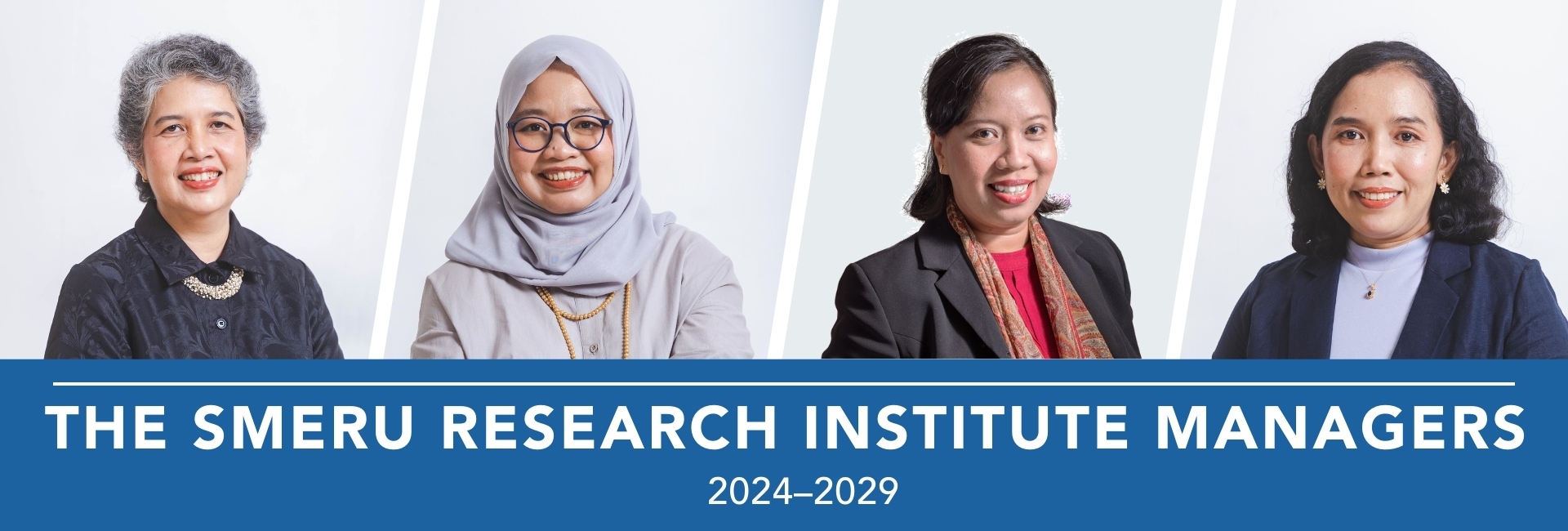In July 2024, The Foundation Trustees of the SMERU Research Institute extended the term of the Management for another five years. Widjajanti Isdijoso will retain her role as Director, Athia Yumna as the Deputy Director for Research and Outreach, Hesti Marsono as the Deputy Director for Administration and Finance, and Heni Kurniasih as the Institute Secretary from 2024 to 2029.
SMERU has navigated a dynamic circumstances over the past five years. The shifting landscape of research funding, the unprecedented global pandemic, and global economic instability have tested SMERU’s resilience as an independent research institution. These changes necessitate a more efficient organizational structure. SMERU must adapt to rapid changes and build institutional resilience. Through restructuring, SMERU aims to improve institutional performance and governance, maintain research quality, and ensure long-term sustainability.
“I'm humbled to be back at the helm of SMERU. Our accomplishments are a testament to the power of collaboration. The support and trust of our donors, stakeholders, and staff has been invaluable. I look forward to continuing to work together to make a positive impact.”
Before becoming the Director of SMERU, Widjajanti served as Deputy Director for Research and Outreach at SMERU for two terms (2009–2019). She has extensive expertise, particularly in developing proposals and coordinating research, providing technical guidance for study implementation, and ensuring the quality and operational oversight of poverty alleviation programs.
About SMERU
The SMERU Research Institute is an independent institution for research and policy studies. SMERU's research focuses on poverty and inequality, social protection, and human development in Indonesia. Since its inception in 2001, SMERU has been proactively engaging with policymakers at national and local levels to promote the use of evidence in policymaking, especially in addressing poverty and inequality.
Read SMERU's history here.




